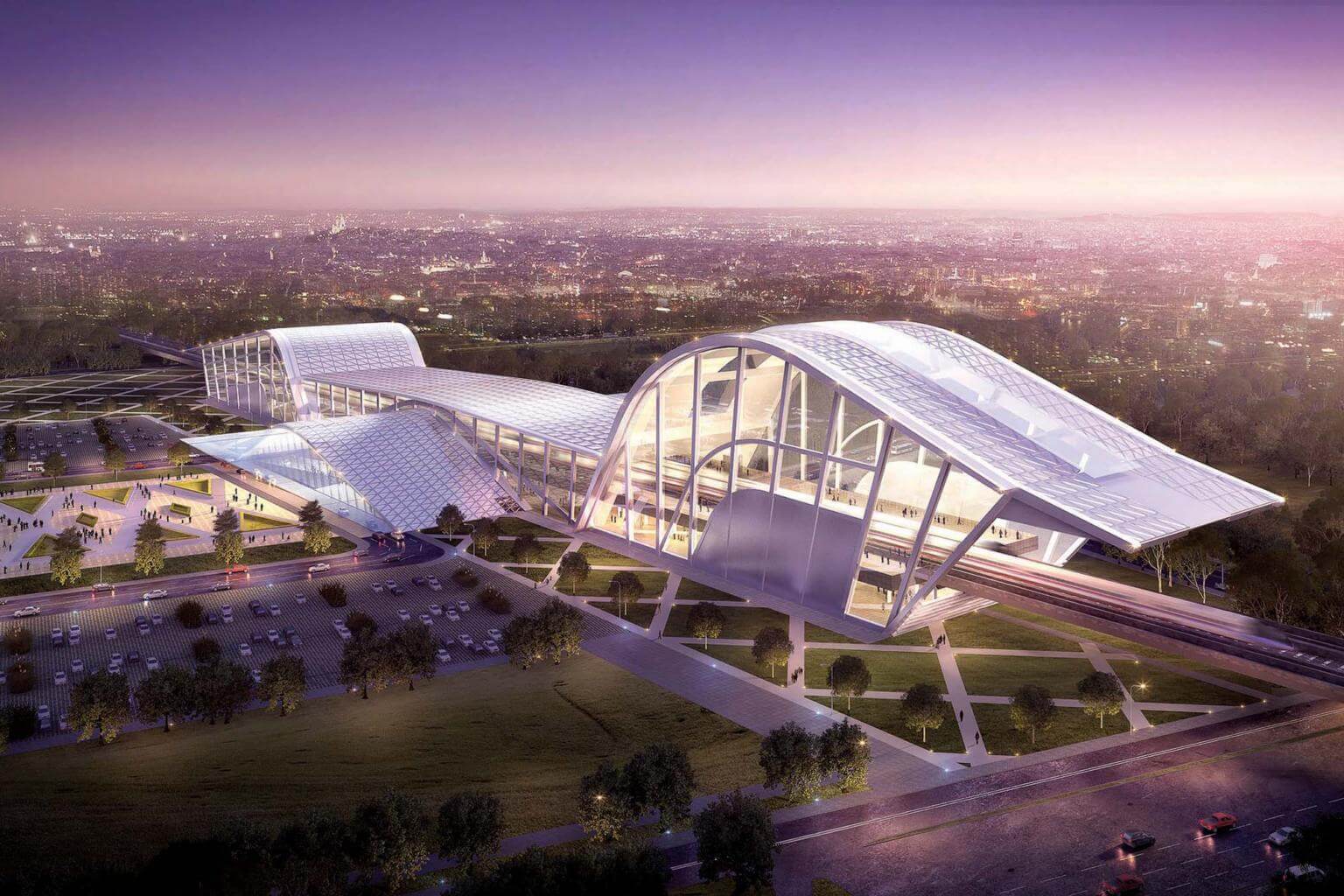Parliament: Agreement to suspend KL-Singapore high-speed rail project a fair arrangement, says Khaw Boon Wan
Sign up now: Get ST's newsletters delivered to your inbox

An artist’s impression of Batu Pahat station on the Kuala Lumpur-Singapore High-Speed Rail line.
PHOTO: EDELMAN
SINGAPORE - The agreement signed between Singapore and Malaysia to suspend the High-Speed Rail (HSR) project for about two years is a "fair arrangement" for both countries, Transport Minister Khaw Boon Wan said on Monday (Oct 1) in Parliament.
Mr Khaw said the deal signed last month "protects Singapore's interests, while reasonably accommodating Malaysia's request".
"It also shows that we can manage our bilateral ties on the basis of mutual respect, and resolve issues amicably in accordance with binding agreements and international law," he added.
Mr Khaw was replying to questions from Mr Ang Hin Kee (Ang Mo Kio GRC) and Non-Constituency MP Dennis Tan on the considerations which led to Singapore agreeing to Malaysia's request to postpone the HSR project, and the details surrounding the deferment.
On Sept 5, the two sides inked a deal to suspend the HSR project up to May 31, 2020, with Malaysia agreeing to reimburse Singapore $15 million for the deferment of the mega development. With the delay, trains will start running only on Jan 1, 2031, instead of Dec 31, 2026, as planned originally.
Mr Khaw told the House that there was no provision in the bilateral agreement, signed in December 2016 to build the 350km line, for the deferment of the project.
"We could have turned down the request to defer the project, enforced our legal rights on termination and sought compensation from Malaysia," Mr Khaw noted.
"This would have been fully in accordance with the bilateral agreement. After that, if and when Malaysia was again ready to pursue such a project, we could discuss a new bilateral agreement for it," he said.
But in the "spirit of bilateral cooperation", Mr Khaw said both sides decided to work out an alternative resolution, and agreed to delay the project for about two years. Malaysia had in August asked for a deferment of three to four years.
"Beyond two years, the current cost estimates would likely be no longer valid, which would affect the viability of the project and its business case," he said.
"A longer suspension period would also impact our development plans for the Jurong Lake District, which will host the Singapore HSR Terminus and many transport, commercial, residential and recreational developments," Mr Khaw added.
He also said Singapore is open to having discussions with Malaysia - during the suspension period - on the way forward for the HSR project, with the aim of reducing costs.
"We are not obliged to accept automatically any proposals offered, but we will assess any proposals from Malaysia carefully and objectively," he added.
Mr Khaw also explained the abortive costs of $15 million which Malaysia has agreed to reimburse Singapore by end-January next year.
These include contract breakage costs, which Singapore has to pay to contractors for terminating ongoing projects and to wind down operations. For ongoing excavation works, for example, the excavation must be backfilled for the site to be safe, and re-excavated when the project resumes, thus increasing costs.
Singapore has spent more than $250 million by the end of May to implement the HSR project, which includes costs for consultancies to design the civil infrastructure, costs for manpower and costs for land acquisition, Mr Khaw said. More than $6 million in costs was incurred in June, another sum of more than $6 million in July, and at least $40 million from August to the end of this year.
Mr Khaw said there will be no further postponement beyond May 31, 2020.
"If Malaysia does not proceed with the HSR project by then, the project will be deemed to have been terminated by Malaysia, which will reimburse Singapore for the project implementation costs incurred by us up to the point of suspension," he said.


